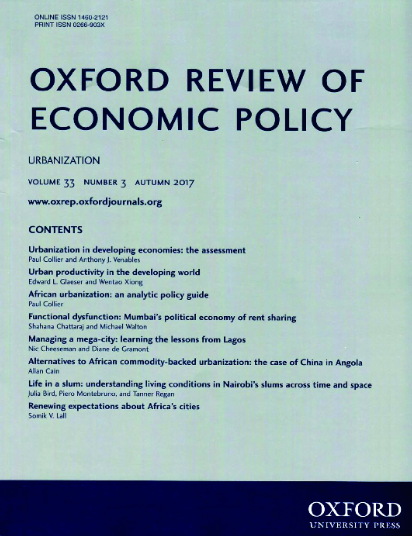Creating a new sovereign debt reconstruction mechanism: why incentives, risk sharing, and CACs will all matter
IF 1.8
2区 经济学
Q2 ECONOMICS
引用次数: 1
Abstract
This paper argues that the Covid recession, and aggressive monetary tightening in the US accompanying the post-Covid recovery, are likely to cause a sovereign debt overhang in emerging market economies—i.e. debt which is unlikely to be fully repaid. A sovereign debt reconstruction mechanism (SDRM) seems necessary to avoid widespread disorderly debt write-downs. We discuss a range of procedures that are available, building upon Anne Krueger’s proposal for an SDRM in 2002 (Krueger, 2002a,b). At that time Krugman (1988) had already argued that any SDRM should incentivize debtors so that they put in effort to clear their debts (a Krugman contract). Menzies (2004) went further than this to show that these effects should be further sharpened, creating what he called ‘hyper-incentive effects’ (a Menzies contract). The International Monetary Fund has argued that risk-sharing between debtors and creditors will also be important (IMF, 2020). But we show that risk-sharing will—in general—pull in the opposite direction to incentive effects, and we doubt the extent to which the IMF has recognized this trade-off. Finally, we argue that collective action clauses (CACs) increase the probability of achieving any agreement, whatever it might be. They will help avoid the alternative of disorderly debt write-downs, outcomes which will deliver neither incentive effects nor risk-sharing.创建新的主权债务重建机制:为什么激励、风险分担和CAC都很重要
本文认为,新冠肺炎经济衰退,以及伴随新冠疫情后复苏的美国激进的货币紧缩,可能会导致新兴市场经济体主权债务过剩,即不太可能完全偿还的债务。主权债务重建机制(SDRM)似乎是必要的,以避免普遍无序的债务减记。我们讨论了一系列可用的程序,以Anne Krueger在2002年提出的SDRM为基础(Krueger,2002a,b)。当时克鲁格曼(1988)已经提出,任何特别提款权都应该激励债务人,让他们努力还清债务(克鲁格曼合同)。孟席斯(2004)更进一步地表明,这些影响应该进一步加剧,创造了他所说的“超激励效应”(孟席斯的合同)。国际货币基金组织认为,债务人和债权人之间的风险分担也很重要(IMF,2020)。但我们表明,总体而言,风险分担将朝着与激励效应相反的方向发展,我们怀疑国际货币基金组织在多大程度上认识到了这种权衡。最后,我们认为,集体行动条款(CAC)增加了达成任何协议的可能性,无论协议是什么。它们将有助于避免无序的债务减记,这种结果既不会产生激励效果,也不会分担风险。
本文章由计算机程序翻译,如有差异,请以英文原文为准。
求助全文
约1分钟内获得全文
求助全文
来源期刊

Oxford Review of Economic Policy
ECONOMICS-
CiteScore
12.50
自引率
1.50%
发文量
41
期刊介绍:
The Oxford Review of Economic Policy is a refereed journal which is published quarterly. Each issue concentrates on a current theme in economic policy, with a balance between macro- and microeconomics, and comprises an assessment and a number of articles. It gives a valuable appraisal of economic policies worldwide. While the analysis is challenging and at the forefront of current thinking, articles are presented in non-technical language to make them readily accessible to all readers. The Oxford Review is aimed at a wide audience including government, business and policy-makers, as well as academics and students. It is required reading for those who need to know where research is leading.
 求助内容:
求助内容: 应助结果提醒方式:
应助结果提醒方式:


